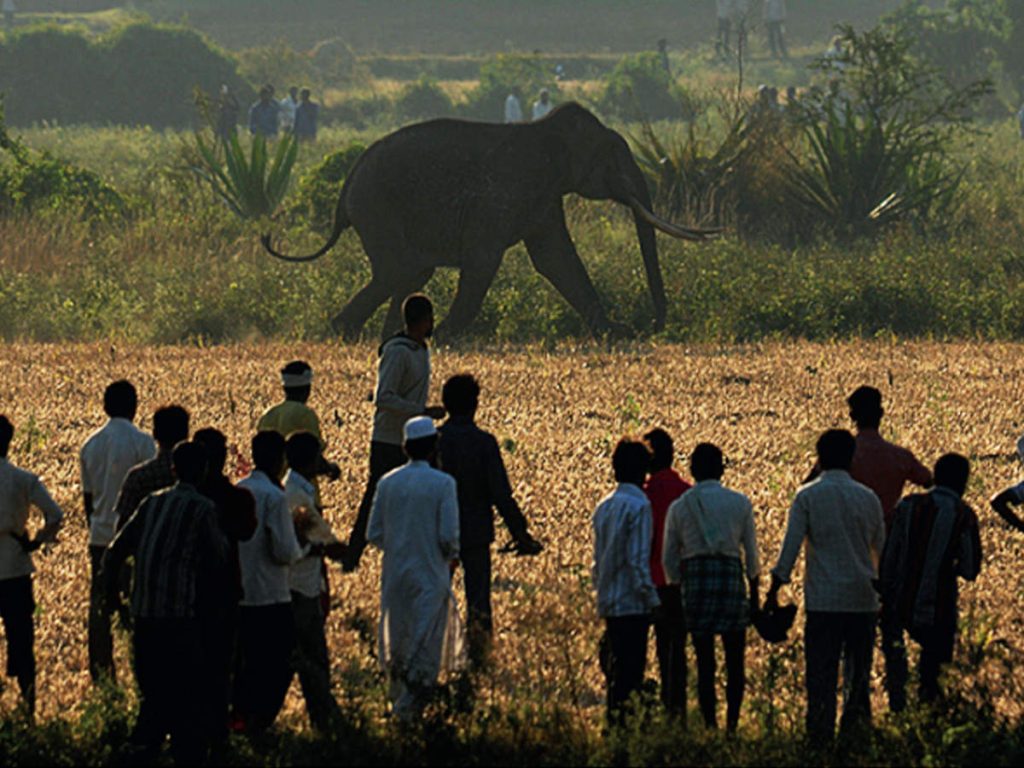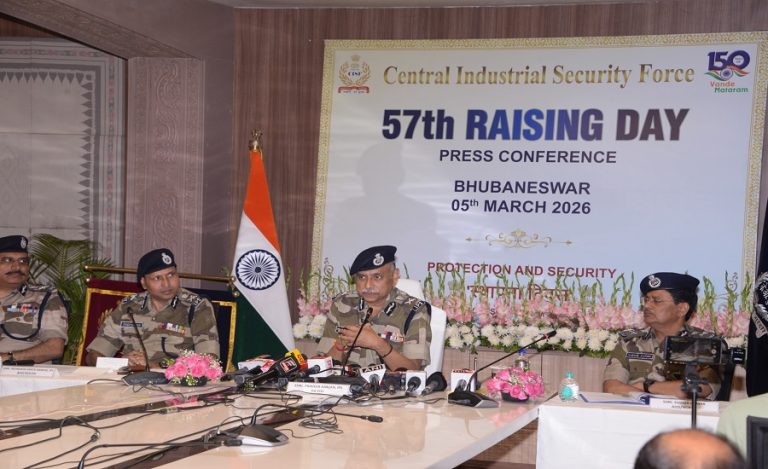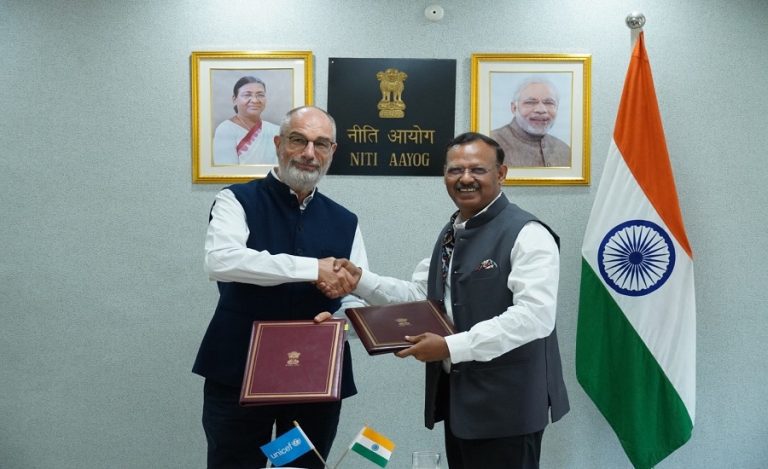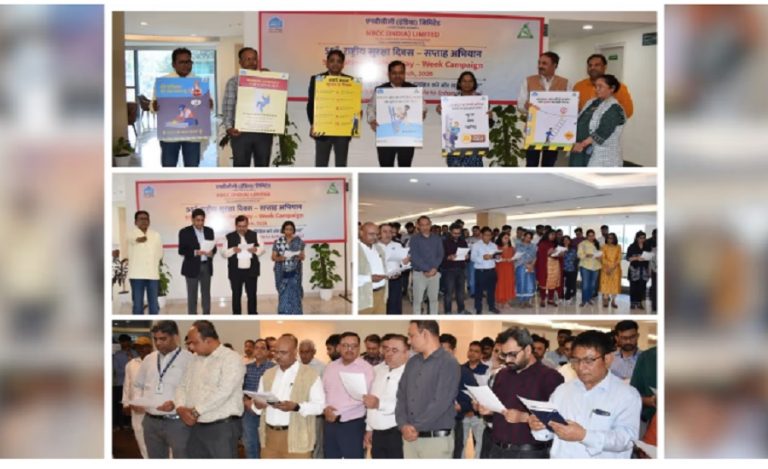“The basic thing with conservation of wildlife is to win the minds of people,” says senior IFS officer Vijay Kumar Gogi, currently posted as the Principal Chief Conservator of Forest Wildlife and the Chief Wildlife Warden of Karnataka.
An increase in man-animal conflict because of a higher density of wildlife population results in damage to crops, cattle, and humans, which further births resentment in society against wild animals.
How is the Karnataka Forest Department addressing the issue? Indian Masterminds spoke to Mr. Vijay Kumar Gogi to find out.

HANGING SOLAR FENCES
The officer is taking several steps to stop the entry of wild animals into a human habitat and vice versa. He has introduced hanging solar fences in forests which will keep animals away from residential villages, thereby mitigating man-animal conflict.
“As the fences are swinging, the animals have a hard time crossing it. Had it been stationary, big animals like elephants would have trampled over it and broken them easily. We have also established elephant-proof fences with solar combinations,” he told Indian Masterminds.
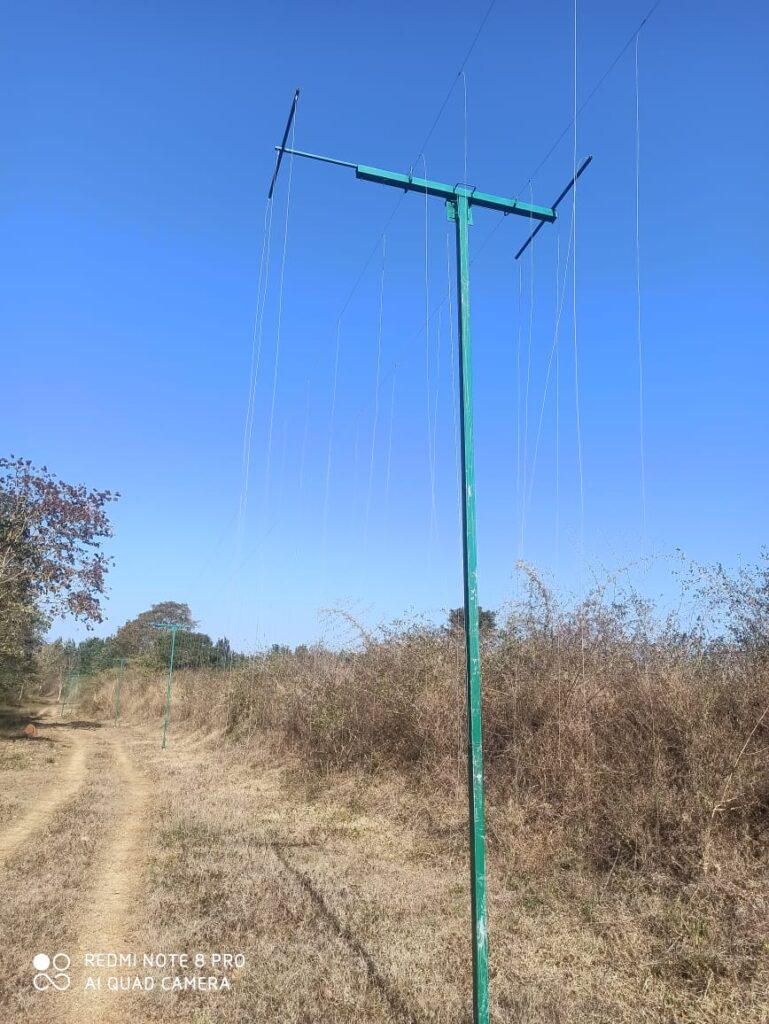
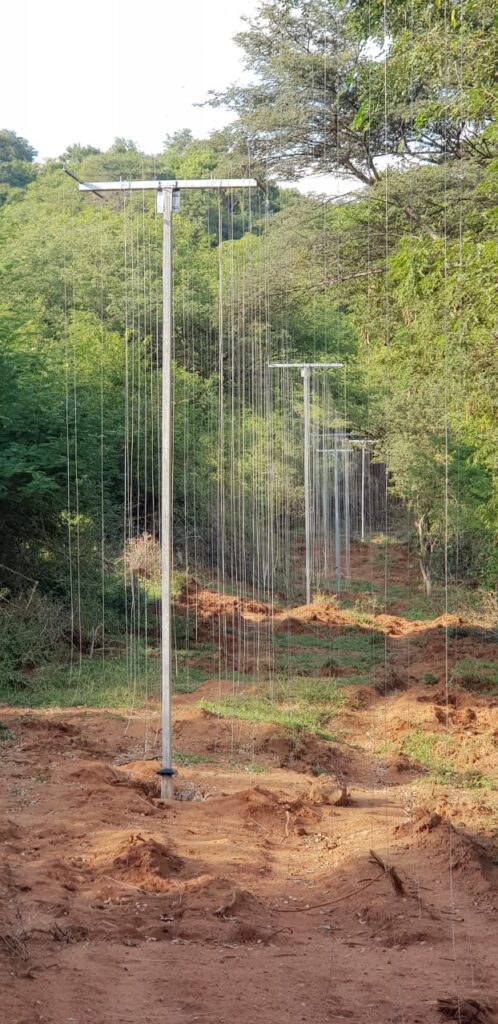
Where the problem seems serious, the officer uses abandoned rail barricades as fences. These rail barricades are from age-old trains that are not in use anymore and are sold as junk by railways. The officer procures them and creates a fence out of them.
“Rail barricades are very successful as 99% of the animals are unable to cross them. Thus, we create a formidable barricade between wildlife and human-dominated places,” said Mr. Gogi.
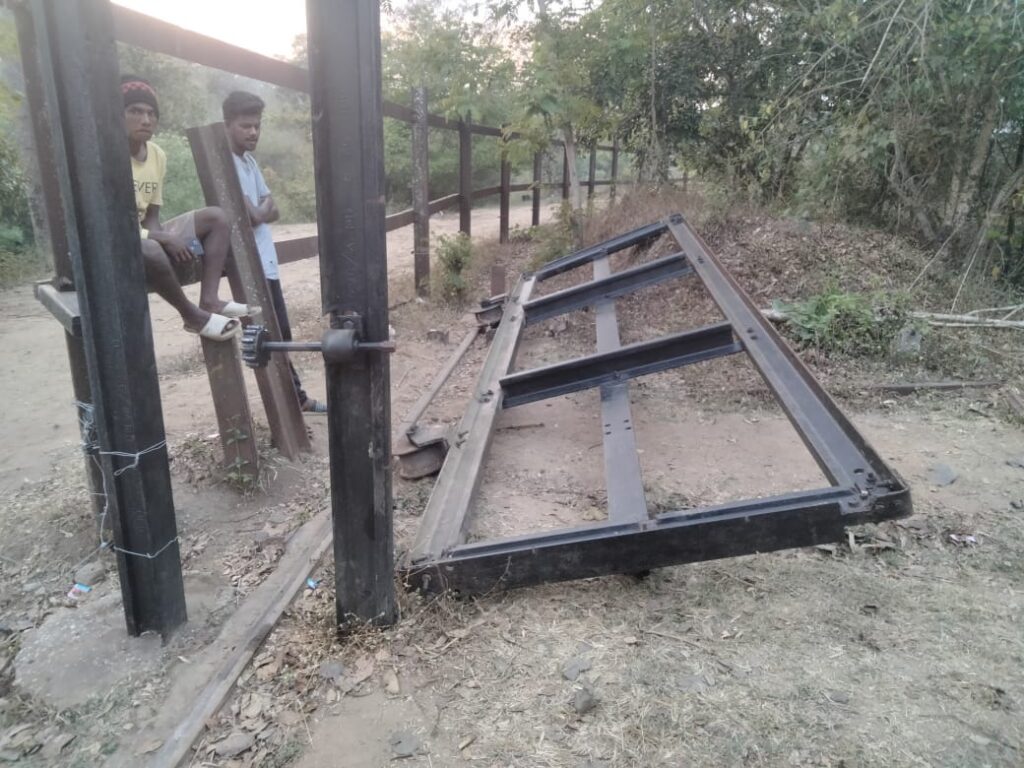
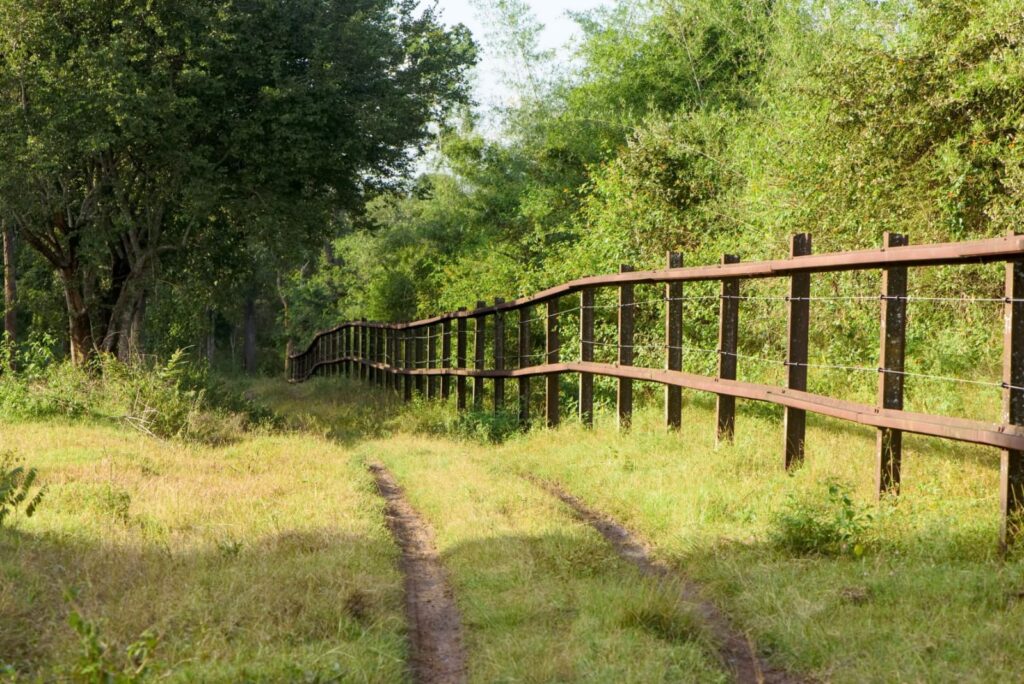
FIGHTING WILDFIRES
Forest fires are a menace that almost each forest department faces at least once a year. A rise in temperature due to climate change in the world leads to dry forest trees catching fire, resulting in loss of environment and wildlife alike.
“The fire season is approaching, and we have started establishing a seamless coordination between forest officials, wildlife, fire department, and police department to fight it off,” Mr. Gogi said.
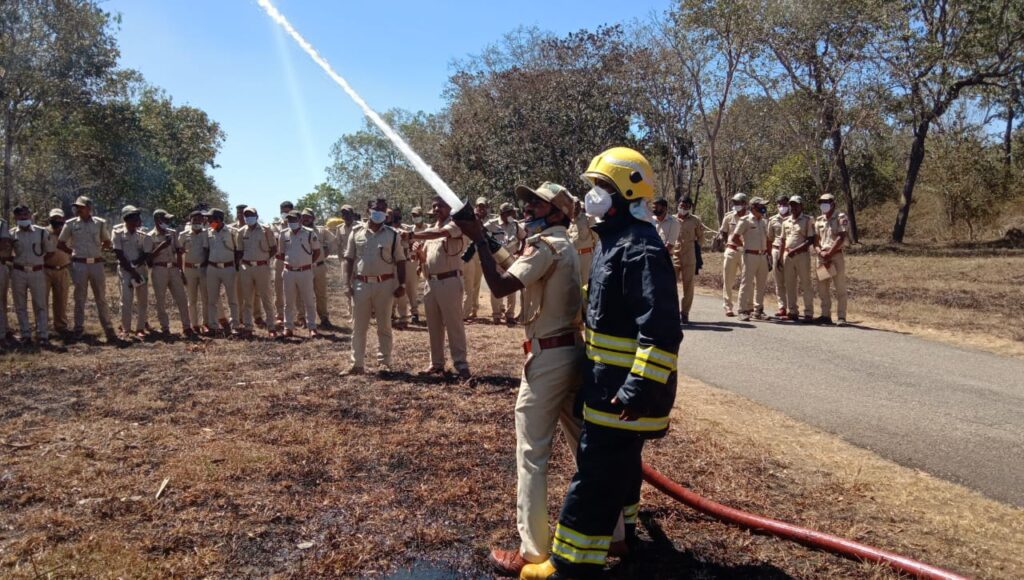
The fire department of Karnataka is training forest officials and rangers to fight off the fire. They are deploying their men and equipment during fire season in the most sensitive regions that are inhabited by tigers.
“Firemen are deployed with our forest department people so that their expertise is transferred to our department as part of training. So, whenever a sudden fire occurs, it is controlled before it goes out of hands.”
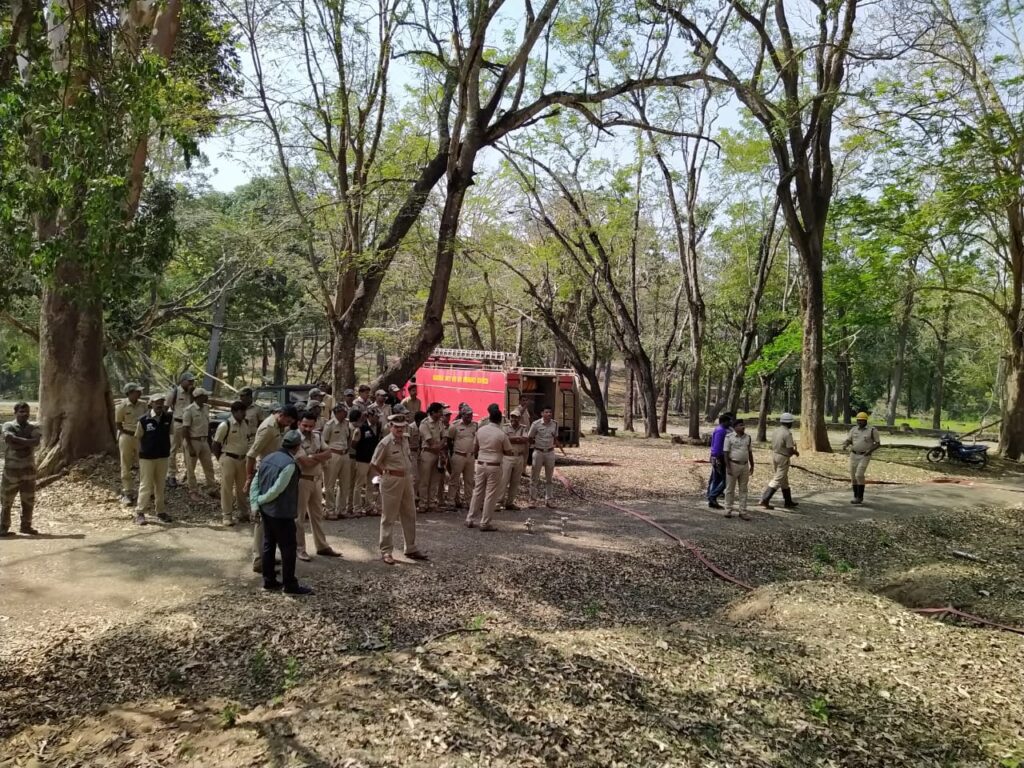
Through this, forest rangers and officials are also developing a skill that will prove to be beneficial for them in the years to come. They are receiving the knowledge of equipment, their usage, and handling of fire. On the other hand, firemen, who were, otherwise, just restricted to fires in cities are learning the skill of fighting forest fires, which is very different in nature.
“It is a mutual learning process that they are gaining with the main objective of controlling forest fires. We have been experimenting with this for the last three years and it has given us great results till now,” Mr. Gogi said.
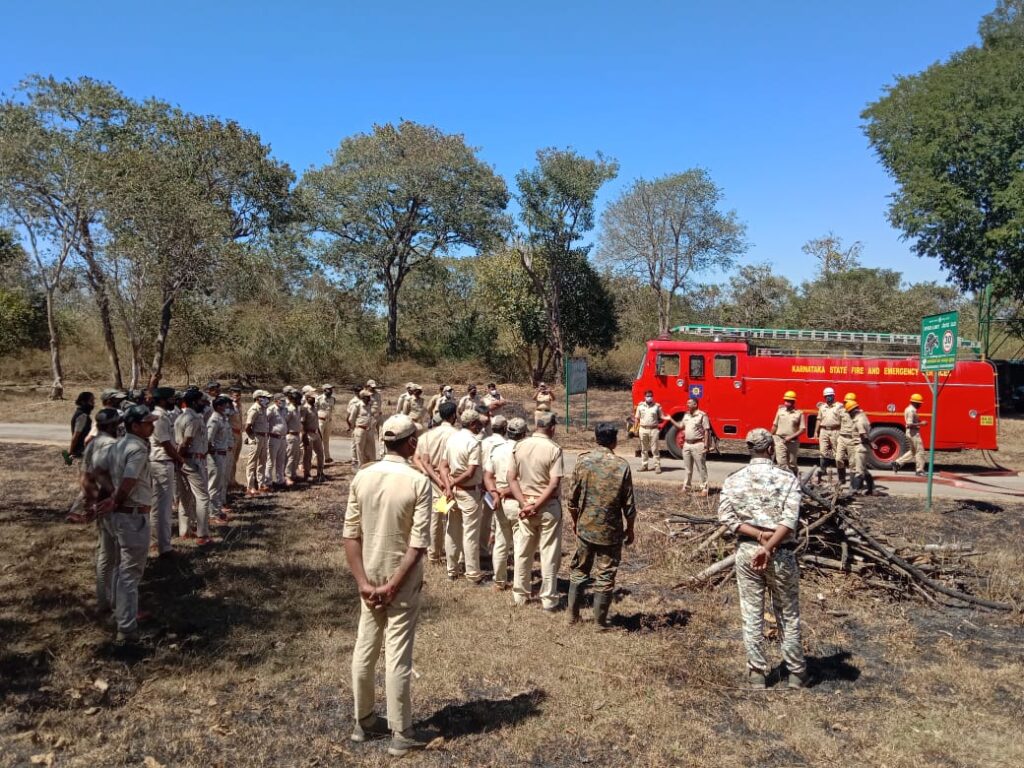
E-PARIHAR
The Forest Department of Karnataka has also launched a method to provide quick compensation to people who have suffered because of wildlife. The app called ‘e-Parihar’ collects the data and information of the amount of loss that they have suffered, in terms of crops, animals, or humans, and quickly processes them so that fast compensation can be provided to the sufferers.
“We get the details of the victim, his bank account, and his loss, and then, direct benefit transfer is made through the app. In case of loss of cattle and other big animals, Rs. 30,000 is compensated, for small animals, Rs. 5,000, and for loss of human life, Rs. 7.5 lakh is given. We also handhold the family for the next five years and compensation of Rs. 2000 is given each month,” the officer said.
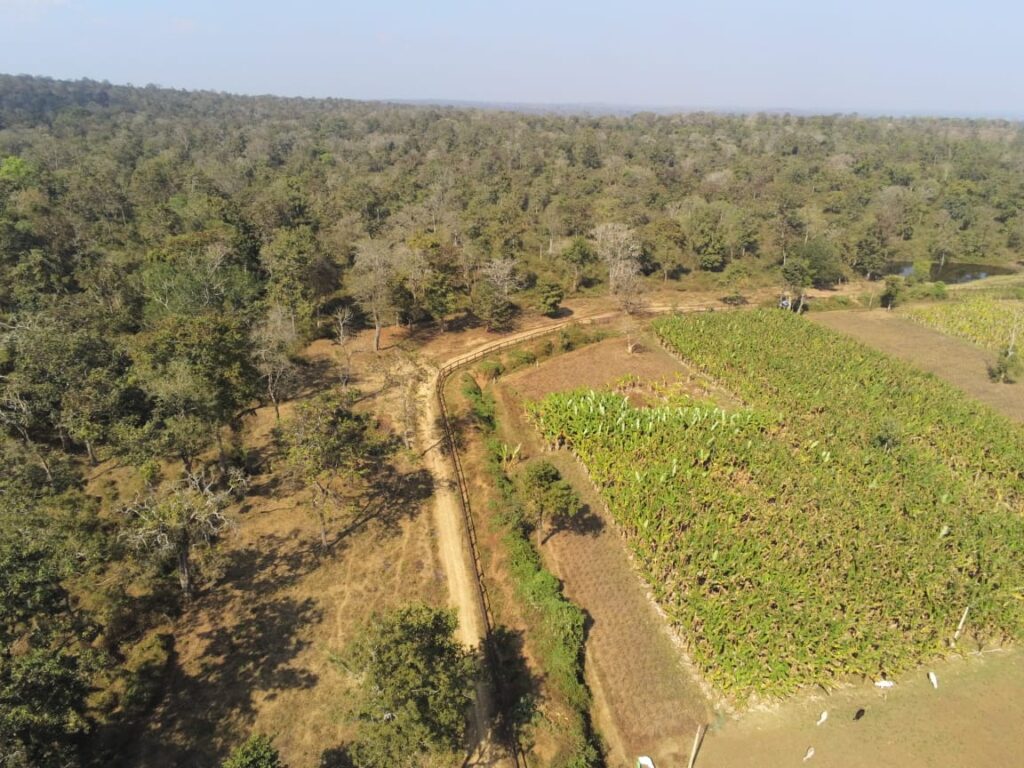
The Wildlife Foundation of Karnataka also takes care of the educational expenses of the children of the victim’s family till their graduation is completed and they become independent.
Through these exercises, Mr. Vijay Kumar Gogi is approaching man-animal conflict in a comprehensive manner.

